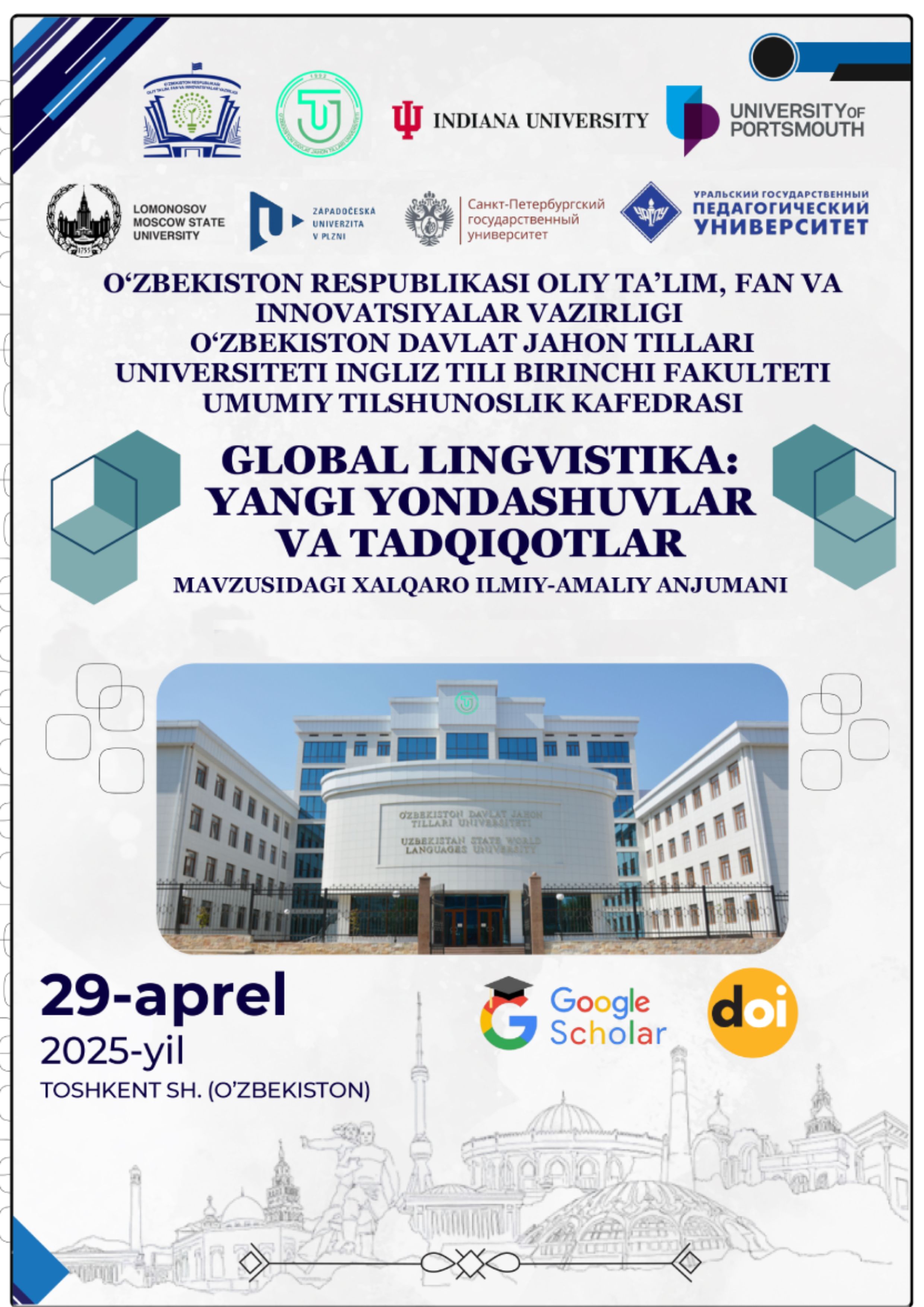THE ROLE OF INQUIRY-BASED LEARNING TECHNOLOGY IN SELF-STUDY EDUCATION
https://doi.org/10.5281/zenodo.15466079
Kalit so‘zlar
Inquiry-Based Learning, self-study education, research skills, question-driven instruction, IBL phases, student-centered learning.Annotasiya
This article explores the role and effectiveness of Inquiry-Based Learning (IBL) technology in self-study education. It highlights the theoretical foundations of IBL, its forms, key dimensions, and specific applications in higher education. The study emphasizes how IBL fosters students’ independent thinking, research skills, and problem-solving abilities. Furthermore, it contrasts the advantages of inquiry-driven education over traditional teaching methods based on scholarly sources. The phases of the IBL process – orientation, conceptualization, investigation, conclusion, and discussion – are clearly explained. This article serves as a valuable theoretical and practical guide for educators and researchers seeking to enhance independent learning practices.
Foydalanilgan adabiyotlar ro‘yhati
Healey, M. (2005). Linking research and teaching: Exploring disciplinary spaces and the role of inquiry-based learning. In R. Barnett (Ed.), Reshaping the University: New Relationships between Research, Scholarship and Teaching (pp. 67–78). McGraw-Hill Education.
Spronken-Smith, R., Walker, R., Batchelor, J., O'Steen, B., & Angelo, T. (2007). How effective is inquiry-based learning in linking teaching and research? International Journal for Academic Development, 12(2), 117–129.
Prince, M. J., & Felder, R. M. (2006). Inductive teaching and learning methods: Definitions, comparisons, and research bases. Journal of Engineering Education, 95(2), 123–138.
Oliver, R. (2008). Engaging primary students in inquiry-based science learning: Some findings of research. Teaching Science, 54(4), 29–32.
Justice, C., Rice, J., & Warry, W. (2007). Inquiry-based learning in higher education: Administrators' perspectives on integrating inquiry pedagogy into the curriculum. Higher Education, 54(1), 81–90.
Alfieri, L., Brooks, P. J., Aldrich, N. J., & Tenenbaum, H. R. (2011). Does discovery-based instruction enhance learning? Journal of Educational Psychology, 103(1), 1–18.
Minner, D. D., Levy, A. J., & Century, J. (2010). Inquiry-based science instruction—what is it and does it matter? Results from a research synthesis years 1984 to 2002. Journal of Research in Science Teaching, 47(4), 474–496.

